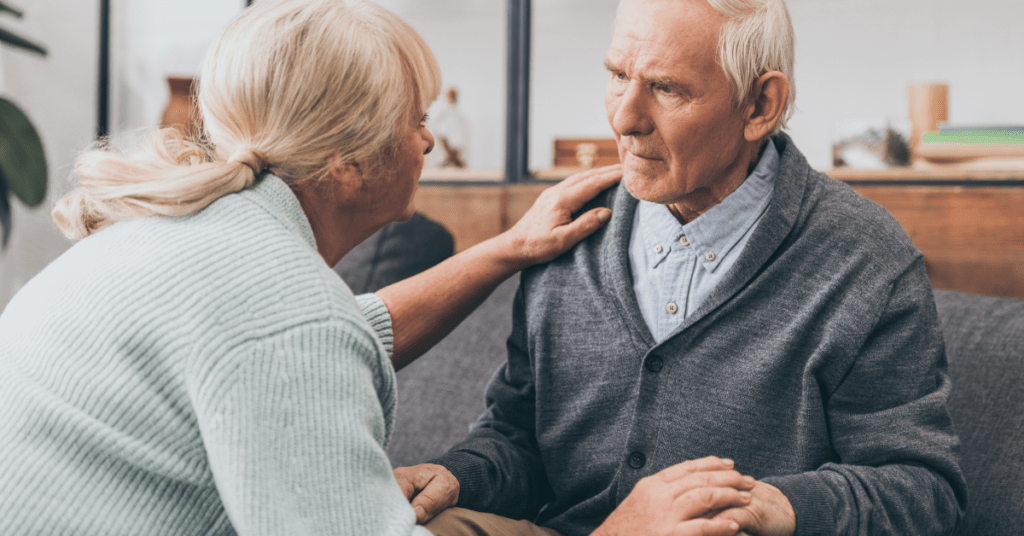This month we’re doing something different with our Meaning Behind the Behaviour Story. Together, we are going to put our “detective hats” on and we will investigate the reasons behind the changes in “Henry’s” personality and behaviour.
“Henry” – Before and After Dementia
Henry’s story was brought to our attention by his worried daughter. She wrote to us a few years ago asking for help on how she can motivate her Dad to be interested in golf again.
Before Henry started showing signs of dementia, his daughter “Mia” shared that he was quite an active man. He enjoyed playing golf regularly. He loved gardening and solving jigsaw puzzles.
After he was diagnosed with dementia, Mia and her Mom started to notice personality changes in Henry. The most prominent of which is his refusal to play golf. Every time they asked if Henry wanted to play golf, he would say “no.”
What “No” Could Possibly Mean
Personality and behavioral changes are common as the symptoms of dementia progress. Among the more common changes that can be observed include: wandering, mood changes, getting upset easily, imagining things, seeing or hearing things that aren’t there; and loss of interest in things they used to be interested in.
The first thing that we all should remind ourselves is that when they say “no,” it is most likely because of their dementia. However, there may be other reasons why a person says no. In Henry’s case, he may have been saying “no,” because:
- It could be the most convenient and easiest response, especially if Henry was getting confused about what they were asking him.
- It’s also possible that Henry could be feeling a little self-conscious about not being able to play golf as well as he used to before the dementia; and saying “no” was the fastest way to get out of that conversation.
- It could also be his way of asserting his independence.
- He could have been affected by apathy. This is a common symptom for someone affected by dementia. It is when a person loses interest in things they used to enjoy or in what is happening around them.
What Can We Do to Turn a “No” into a “Yes”
If Henry was getting confused about what we are asking him, then let’s “keep it simple”. Ask one question at a time and give him a chance to process and respond before following up with another question.
We should avoid asking him a question while eating or while he’s getting dressed. Let’s avoid multitasking altogether.
If he is feeling self-conscious about his abilities to play golf, we can still encourage Henry to be active with another activity. We can maybe invite him to go for a walk.
If Henry was simply trying to assert his independence, let’s step back and give him that space. We can always try again later. This way, we are keeping the peace in our relationships and we are showing Henry we respect his independence.
If apathy is the reason, sometimes it’s a matter of how the person was approached. Instead of saying, “Would you like to go play a game of golf?”. Success may come from approaching the invite in a different way such as, “Hey! It’s a beautiful day, let’s go squeeze in a quick game of golf!”
Supporting Someone Living With Symptoms Of Dementia Is Always Personal
Last but not least, we can also ask someone else to give it a try. Maybe Henry will be more comfortable talking with another man, for example.
Supporting someone living with symptoms of dementia is always personal or person-centred. There is no “cookie-cutter” approach to managing dementia-related behaviours. It’s important that we try to get to know the person we are supporting – what they were before and after dementia, paying attention to the changes as their dementia progresses.
What do you think was the reason “why” Henry refuses to play golf? What do you think we can suggest to Mia on how she can better support her Dad to be physically active and experience “joie de vivre” again?
If you have similar stories you want to share or if you have any questions in regards to supporting someone with dementia, send us an email at Info@DementiaSolutions.ca



